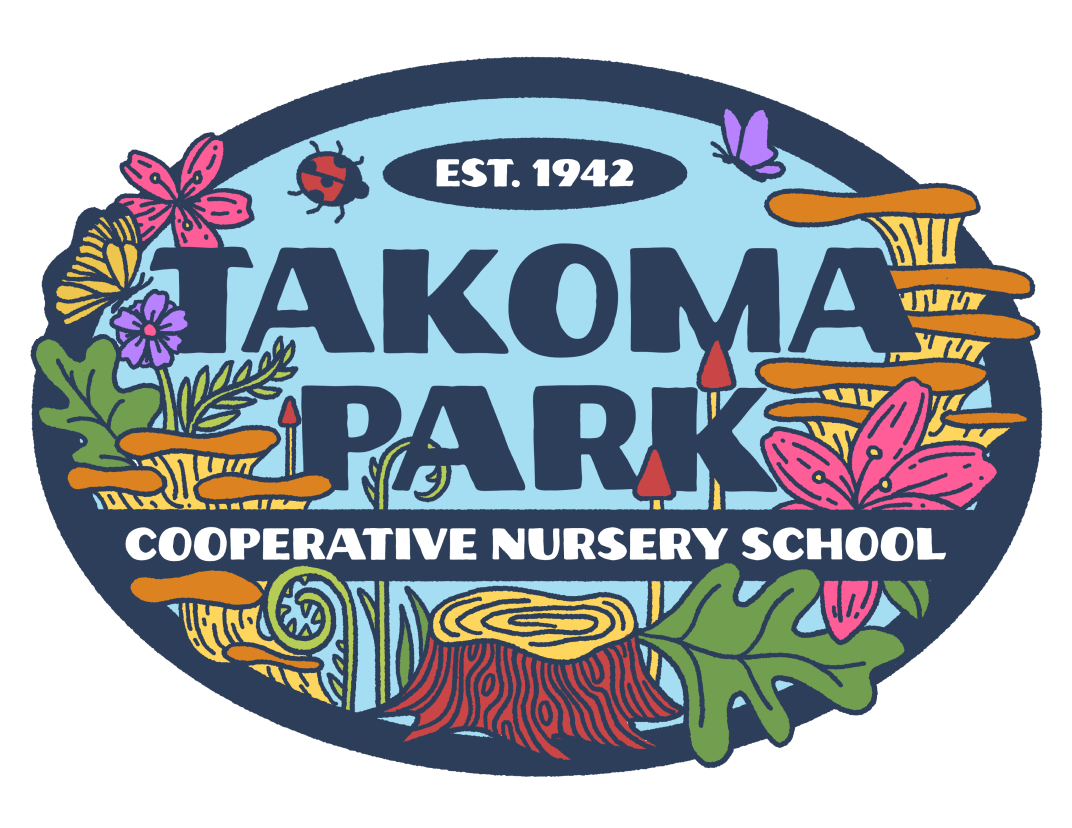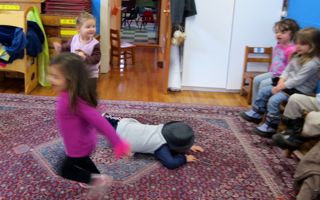"I'm bored."
The week before Winter break found the Leaves class in something I can only describe as dramatic play bootcamp. In the 3 mornings we have with them, we scooped up a heaping spoonful of our action research plan that week and it was delicious! This spoonful was only a small portion of this action research project, but it was especially informative because we got right to the crux of the biscuit..."I'm bored." We are looking to change up the social dramatic play skills in a whole class. This is outlined in the post, We would be a whole fleet of helicopters. We always have a handful of children who are still developing the language of play and social skills, and of course, human development is fluid and dynamic, but in this case, the majority of the class is simply not conversant with imaginary play.
On the Monday, one of our favorite play therapists, Nancy Pendery, LCWS-C came in for an observation. These kinds of observations are really valuable for me professionally -- when addressing whole-class interventions, the first question I must ask is, "How am I influencing the environment?" and "What can I change or bring to the conversation?" Nancy's observations and recommendations bring answers to those questions, but also brought about more questions. We set out to consider these on Tuesday and Wednesday.
On Tuesday we did a one-two punch with movement and story reenactment sessions. For the movement session we combined gross motor movement with emotions. Using mirrors and a game format, the children practiced each other's names while identifying facial expressions and this was all bundled up with movement. Pairing gross motor movement with conceptual-leap kind of information is always a win, but parts of this were actually quite difficult for many of them. Names matched to people do not come easy for many of the children and identifying emotions then imagining these to express them was also difficult.
For the story reenactments, we used the children's journals to identify roles and action. Each storyteller chose the actors and scene to present his or her journal entry. This served our primary goal to encourage the children to identify each other by name (we were starting with a very specific goal), but it also celebrated, publicly and openly, Story and how each child owns several stories.
But this is when we heard, "I'm bored."
We actually saw it coming. Our storyteller was assigning roles and his first selection was named with a joy and a flourish as he pointed to one of his familiar friends, "You will be the bear." The bear was a central character, but the actor was not having it. He dripped off the bench and puddled over to the edge of our stage not so much like a bear, but like someone who was being forced into something. On the surface, we could think that the answer to this could be, "There are no small parts...blah, blah, blah." But this was not his story.
The bear's cue came and so did the, "I'm bored." It was really a lightbulb moment. Joy. He wasn't bored, but he didn't know how to be a bear. Not only that, but we already noticed that during the reenactments, "wolf", "bear", "sister", etc. all kind of looked the same. Each actor stepped onto the purple square in our classroom and simply stood. There was no indication of wolfness, sisterness, or anything elseness. Look, we know this is within reason. Isn't Paley's work jam-packed with examples of just being and it counts, but what happens when the child feels the absence of the "ness" and knows it? He just might puddle up on the floor and say, "I'm bored."
This "I'm bored" could actually be a "I want to be a bear. My friend picked ME to be a bear. But what are my lines again?"
Right then I decided to start from scratch. We spent the rest of the day talking about what bears, wolves, sisters, buildings, windows, ponds, popping out eyeballs would say or do. Then on Wednesday, we did the same thing again, but used more of a guessing game format. I call it charades, but I don't really know how to play charades, so . . .
That all sounds well and good (maybe), but just to make sure that this theory that "I'm bored" in this case actually meant "I don't know how to play," I checked in with the Tracks class that afternoon. They are all now five or almost five and so have so much experience under their belt. I wanted to ask one in particular why he STOPPED saying "I'm bored," something he used to say with regularity all the way through the 2s and 3s. He came in a bit late, so I threw the question "Why do you say you are bored?" out and one of the Tracks said carefully, "I say it when I don't have anything to do usually." And another, "I say it when I don't know what to do." Well, then our used-to-be "I'm bored" walked in and was asked the same question and this is what he said . . .
"I didn't know how to play, but I guess I do now."



